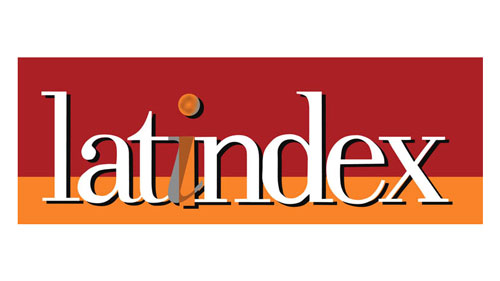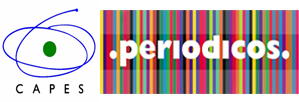Princípios de aprendizagem de jogos eletrônicos: gameficando a aula de línguas
DOI:
https://doi.org/10.26512/rhla.v13i1.1331Keywords:
Jogos eletrônicos;, Aprendizagem;, GameficaçãoAbstract
Resumo
O objetivo deste artigo é discutir a aprendizagem propiciada pela experiência com jogos eletrônicos e como professores e escolas poderiam aprender com os jogos que apresentam princípios epistêmicos (SHAFFER et al., 2004). E ainda, apresentar a análise, segundo os princípios de Gee (2005; 2008), de nossa experiência em jogar um jogo comercial. Agameficação(DETERDING, 2011) é um processo que se vem disseminando como estratégia de aprendizagem. Esperamos com esta discussão despertar o interesse de professores para o potencial dos jogos eletrônicos na aprendizagem de línguas e demais conteúdos.
Palavras-chave: Jogos eletrônicos.Aprendizagem.Gameficação.
Abstract
The aim of this article is to discuss learning afforded by the experience of playing video games and how teachers and schools could learn from games that have epistemic principles (SHAFFER et al., 2004). We also present our experience in a commercial game, according to the principles of Gee (2005; 2008). The gamification (DETERDING, 2011) is a process that has been growing as a learning strategy. We hope that this discussion can draw teacher’s attention to the potential of computer games for language learning and other contents.
Keywords: Video games.Learning.Gamification.
Downloads
References
BRANSFORD, JohnD.;BROWN, AnnLeslie; COCKING, Rodney.How people learn: brain, mind, experience and school. Washington, D.C.: National Academy Press, 2000. p.206-230.
CARR, Nicholas. What the internet is doing to our brains: the shallows. New York:Norton & Company, 2010.
COPE, B.Cope; KALANTZIS, Mary.Critical literacies pedagogy. Literacies. Cambridge University Press, 2012.
DEMPSEY, JohnV.; RASMUSSEN, Kathleen; LUCASSEN, Elisabeth B. Instructional gaming: implications for instructional technology. Paper presented at the Annual Meeting of the Association for Educational Communications and Technology, Nashville, TN, p. 16-20,Feb.1994.
DETERDING, Sebastian. From game design to gamefulness: defining "gamification". Mindtrek'11, Tampere, Finland, 2011.
EMES, Craig. E.Is Mr. Pac Man eating our children? A review of the effect of video games on children. Canadian Journal ofPsychiatry,n.42, p. 409-414,1997.
ESCHEVERRIA, Alejandro.et al. A framework for the design and integration of collaborative classroom games. Computers & Education, v. 57, n. 1, p. 1127-1136,2011.
GEE, JamesPaul. New literacy studies. Situated literacies: reading and writing in contex. London: Routledge, 2000.
”“”“”“”“”“”“. Good video games good learning. Phi Kappa Phi Forum,v. 85, n.2, 2005.
”“”“”“”“”“”“. What video games have to teach us about learning and literacy.New York:Palgrave Macmillan, 2007.
”“”“”“”“”“”“. Learning and games. The ecology of games: connecting youth, games and learning. MacArthur Foundation Series on Digital Media and Learning. Cambridge, MA: The Mit Press, 2008.
JENKINS, Henry. Fans, bloggers, and games: exploring participatory culture. New York: New York University Press, 2006.
”“”“”“”“”“”“.Cultura da convergência: a colisão entre os velhos e os novos meios de comunicação.Tradução:Susana Alexandria. 2.ed. São Paulo: Aleph, 2009.
LANKSHEAR, Colin.; KNOBEL, Michele. New literacies:changing knowledge and classroom learning.Buckingham: Open University Press, 2003.
LAVE, Jean; WENGER, Étienne. Situated learning: legitimate peripheral participation. Cambridge: Cambridge University Press, 1991.
MATTOS, Andrea. M. Novos letramentos, ensino de língua estrangeira e o papel da escola pública no século XXI. Revista X, v. 1, p. 33-47, 2011.
MERCER, Sarah. Understanding learner agency as a complex dynamic system. System, v. 39, n. 4, p. 427-436, 2011.
MITCHELL, Alice.;SAVILL-SMITH, Carol. The use of computer and video games for learning: a review of the literature. Learning andSkillsDevelopmentAgency, 2004.
MORAN, José Manuel. A educação que desejamos,novos desafios e como chegar lá. Campinas: Papirus, 2007.
PAIVA, Vera.Lucia.M.O. O uso da tecnologia no ensino de línguas estrangeiras: breve retrospectiva histórica. In: 7oEncontro do Celsul(Centro de Estudos Linguísticos do Sul), 2006, Pelotas. Programação e resumos. Santa Maria: Gráfica Editora Pallotti, 2006. p. 1-16.
PRENSKY, Marc. Digital natives, digital immigrants Part 1. On the Horizon, v. 9, n. 5, p. 1-6, 2001.
”“”“”“”“”“”“. Digital natives, digital immigrants.Part 2: Do they really think differently? On the Horizon, v. 9, n.6, p. 1-6, 2001a.
RANDEL, Josephine.et al. The effectiveness of games for educational purposes: a review of recent research. Simulation & Gaming,v.23,n. 3,set. 1992.
SAWYER, David B. The "Serious Games" Landscape. Presented at the Instructional & Research Technology Symposium for Arts, Humanities and Social Sciences.Camden, USA, 2007.
SHAFFER, DavidW.et al.Video games and the future of learning,2004. Disponívelem: <http://gise.rice.edu/documents/FutureOfLearning.pdf>.
VIANNA, Ysmar et al.Gamification, Inc: como reinventar empresas a partir de jogos. MJV Press, 2013.
XAVIER, AntonioCarlosS. Letramento digital e ensino. In: SANTOS,Carmi F.;MENDONÇA,Márcia. (Org.). Alfabetização e letramento: conceitos e relações.v. 1. Belo Horizonte: Autêntica, 2005.p. 1-9.
Downloads
Published
How to Cite
Issue
Section
License
Articles published by the Journal Horizontes de Linguística Aplicada are licensed under a Creative Commons Attribution-NonCommercial-NoDerivatives 4.0 International License.
By publishing in Horizontes de Linguística Aplicada, authors agree to the transfer of economic copyright to the journal. Authors retain their moral rights, including the right to be recognized as the creators of the work.
Authors and readers are free to:
Share — copy and redistribute the material in any medium or format
Under the following terms:
- Attribution — You must give appropriate credit , provide a link to the license, and indicate if changes were made . You may do so in any reasonable manner, but not in any way that suggests the licensor endorses you or your use.
- NonCommercial — You may not use the material for commercial purposes .
- NoDerivatives — If you remix, transform, or build upon the material, you may not distribute the modified material.
- No additional restrictions — You may not apply legal terms or technological measures that legally restrict others from doing anything the license permits.





